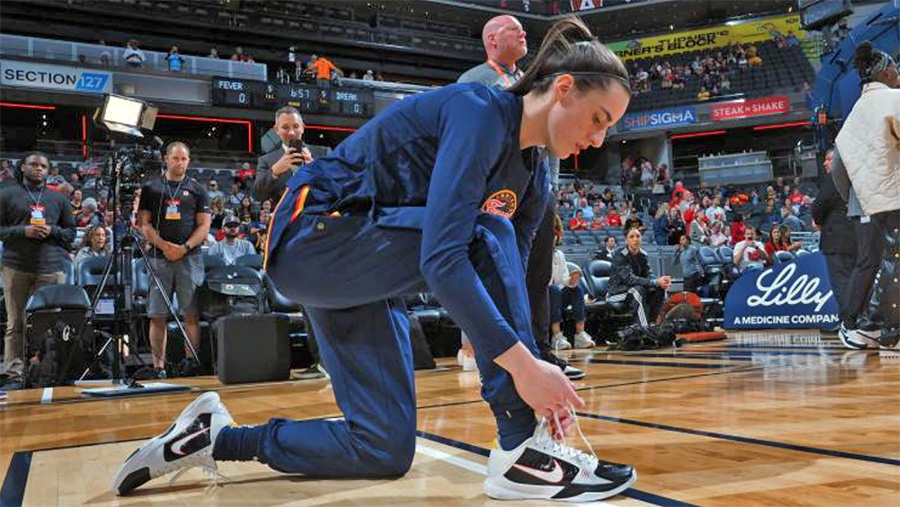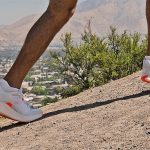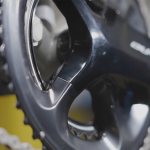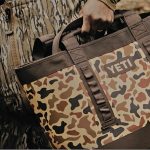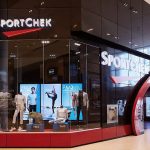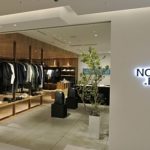Nike scored its first rating upgrade since the company appointed Elliot Hill as CEO. Truist Securities’ Joe Civello believes Nike’s increasingly veteran-driven management team can revive the brand’s marketing and innovation, including its management in promoting Caitlin Clark, while continuing to repair wholesale relationships. Civello also cited selling direct on Amazon as a “game-changer” opportunity.
“While we still view a turnaround process as long/uncertain, we’re more optimistic on shares as investor expectations finally seem to accurately reflect this reality,” Civello wrote in a release on Thursday, October 11. “Further, with a team of company vets back at the helm, we think they’re moving in the right direction.”
Truist raised its rating on Nike to “Buy” from “Hold” and lifted its price target to $97 from $83. Nike shares closed on October 11 at $82.10, down 35 cents and 24.4 percent, respectively, since the beginning of 2024 at $108.57.
Civello also noted that he believes Nike’s struggles are due to its push to emphasize direct-to-consumer sales that hampered innovation and “drove customer fatigue around key products.” He cited efforts to re-engage wholesale partners “so far have been limited” and called the hiring in July of Tom Peddle, a 30-year Nike veteran, as VP of marketplace partners “the first step in showing that they’re serious about these efforts.”
After the market closed on October 11, Nike announced that Peddle had appointed him to his previous role as the VP and general manager for the North American region. The subsequent hiring of 32-year Nike veteran Elliot Hill, who has extensive marketplace and marketing experience, “strengthens our conviction that the company is moving in the right direction.”
Civello also favorably cited the return of Nicole Graham as chief marketing officer, the promotion of Tom Clarke to senior advisor to the CEO, and the promotion of former chief design officer John Hoke to replace Clarke as chief innovation officer. “Given their backgrounds/successful track records in marketing and innovation (the two key areas that Nike has lagged in), we think these leadership shifts can help drive a turnaround,” wrote Civello.
Nike’s shifting back toward wholesale has been marked by its re-entry into DSW and Macy’s, but Civello believes other retail chains would welcome Nike products, and the company’s reputational risks for selling more downstream are minimal. Civello wrote, “While we understand some investors may be cautious about potentially generating less-quality growth in lower-tier shopping venues, we think that (1) the opportunity to reach more customers in physical retail stores where they already like to shop is too important of an opportunity and (2) Nike’s has enough breadth to effectively segment its products between channels to mitigate risks.”
Beyond the progress that the company has made in re-engaging with retail partners, Nike has another near-term opportunity, according to Civello, in ramping up its marketing investments. He believes Nike should have taken advantage of opportunities to invest in marketing the brand during the Paris Olympics rather than focus on expense controls. “At this point, we think the bull case for NKE revolves so much more heavily around the LT health of the brand (vs. NT results) that investors will be more than willing to sacrifice some margins to get more visibility into growth,” wrote Civello.
Nike’s signing of Caitlin Clark, the WNBA point guard, to an eight-figure deal with a signature shoe “should be an easy bucket,” added Civello. Clark was signed in April 2024 and is “arguably one of the most popular sports figures of the past year. ” However, Nike has not widely promoted her.
Civello noted that while long lead times have challenged Nike’s ability to turn product, its inability to deliver Clark’s first signature shoe in time for the 2024 WNBA season likely reflects “deeper operational issues” that the new executive team should be able to resolve. Civello noted that Lebron James, who signed with Nike in May 2003, wore his first signature shoe during the LA Lakers opening game in October 2003.
Civello also believes Nike should revisit selling its product line DTC on Amazon, given its progress in policing counterfeiters that use the platform to sell.
Nike ran a small pilot program from 2017 to 2019. Civello believes brands, including Adidas and Ugg, “benefit from having their own stores on Amazon because it enables them to curate a premium shopping experience” on a platform that Truist estimates accounts for 48 percent of US e-commerce sales.
Civello said Nike’s shares still are not “cheap“ and its “recovery looks like a long/bumpy process.“ However, he believes NKE shares’ recent underperformance presents an “attractive entry“ point into a longer-term turnaround story.
“We think investor expectations have been appropriately reset to reflect the near/medium-term pressures that Nike is facing,“ said Civello. “At these levels we think qualitative improvements that highlight that the new management team is aggressively pursuing a turnaround (potentially by executing on some of the items discussed in this note) would be enough for shares to outperform.“
Image courtesy Nike

